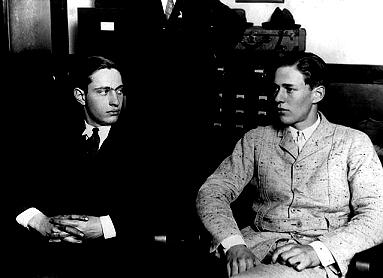
Philosophy of Human Nature
| Andrew
Mills'
Homepage |
Course
Resources
Homepage |
Dept.
of Religion
and Philosophy |
 |
Integrative
Studies 250
Philosophy of Human Nature Fall Quarter 2001
|
Instructions
Below you will find 12 questions, in four groups of three. On the exam, there will be two questions from each group, and you will be asked to select one question from each group to answer. (That is, eight of these twelve questions will show up on the exam, and you will write on four of those eight.) Each question can be answered with a medium length essay, but it is important that you answer all parts of each question in order to get full credit. I encourage you to study in groups for this exam. Your answers will be graded on their accuracy, their clarity, their insightfulness, and the degree to which they reveal an understanding of the course material.
Group I
1. Explain the difference between the therapeutic and the retributivist views of punishment. Of those two views, which is a preferable theory of punishment? Why?
2. What is the difference between event causation and agent causation? What criticisms can be made of the concept of agent causation? (See Roderick Chisholm’s article for this distinction.)
3. A.J. Ayer draws a distinction between acts that are caused and acts that are constrained. Explain this distinction. Explain how such a distinction is crucial to someone, like Ayer, who is defending compatibilism.
Group II
4. Nietzsche claimed that God is dead, and that we have killed him. What does it mean to say that God is dead? What consequences does God’s death have? What should we do now that God is dead?
5. What is the difference between a ‘master morality’ and a ‘slave morality’? Explain the difference between the master morality’s concepts of ‘good and bad’ and the slave morality’s concepts of ‘good and evil’.
6. What are Nietzsche’s criticisms of Christianity? Do you think they are successful criticisms? Why or why not?
Group III
7. Present the strongest argument you can think of in favor of the death penalty. What is the best objection to this argument? Defend your argument from that objection.
8. Present the strongest argument you can think of for the abolition of the death penalty. What is the best objection to this argument? Defend your argument from that objection.
9. People on both sides of the death penalty debate talk about the dignity of human beings. How do proponents of the death penalty make use of the notion of human dignity in their position? How do opponents of the death penalty make use of the notion of human dignity? Which position regarding human dignity do you find more persuasive? What are your reasons?
Group IV
10. The term "unnatural" can be interpreted in a number of different ways. Identify three ways this term could be understood. Explain how, on each of these interpretations, the argument that homosexuality is both unnatural and immoral does not work.
11. Of the movies Swoon and Rope which was a better treatment of the Leopold and Loeb case? Defend your answer. (Don't here talk about which movie you found more entertaining, or which movie you'd rather see on a Friday night. Rather, talk about which movie did a better job of talking about the issues in the Leopold and Loeb case.)
12. What is Wolf Larsen’s philosophy? What criticisms can you offer of Larsen’s view of the human condition? Do you think these criticisms are successful?